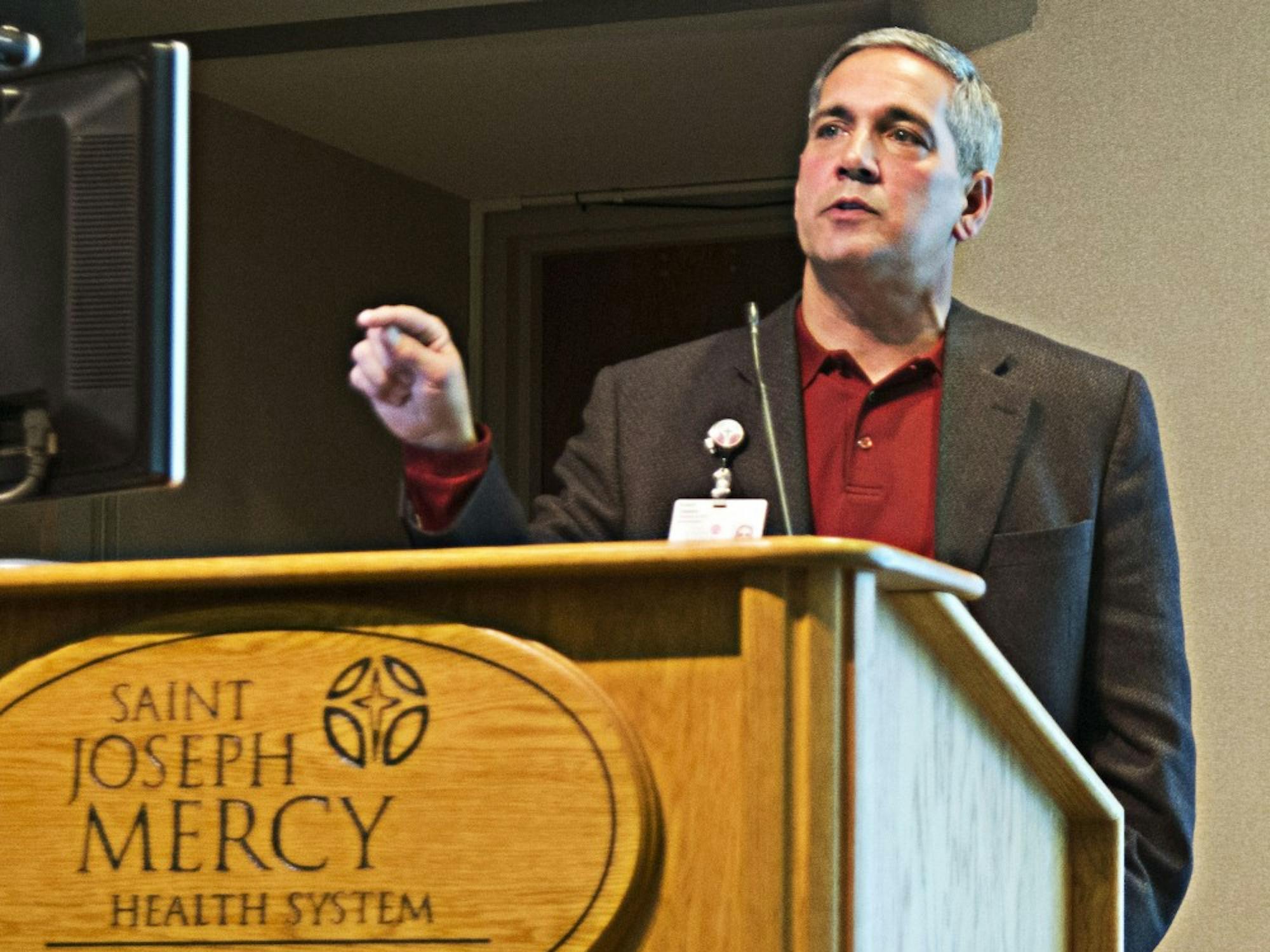The Affordable Care Act was explained by a panel of seven speakers Oct. 25 at St. Joseph Mercy Hospital in Ypsilanti. The teach-in covered a variety of issues surrounding the act that were discussed by the speakers who have different backgrounds in the healthcare field.
The seven discussion leaders included: Robert Casalou, president and CEO of St. Joseph Hospitals in Ann Arbor, Saline and Livingston; Steven Hernandez, coordinator of the Michigan Consumers for Healthcare Coalition; Kirk Roy, vice president of National Health Reform for Blue Cross Blue Shield of Michigan; Robbya Green-Weir, a lecturer for the School of Health and Science at Eastern Michigan University; Amy Lamb, vice president of the American Occupational Therapy Association and assistant professor of occupational therapy at EMU; Raymond Rion, medical director at Packard Health; and Andy Farmer, the associate state director at AARP Michigan.
The Affordable Care Act became a law March 23, 2010. According to www.HealthCare.gov, on Jan. 1, 2014, “Americans who earn less than 133 percent of the poverty level, approximately $14,000 for an individual and $29,000 for a family of four, will be eligible to enroll in Medicaid. States will receive 100 percent federal funding for the first three years to support this expanded coverage, phasing to 90 percent federal funding in subsequent years.”
Roy, who gave the insurance company perspective, said on Jan. 1, 2014, more than 450,000 Michiganders will become eligible for Medicaid.
“This radically changes how health insurance works,” he said.
“There is an ecosystem comprised of all aspects of the healthcare system,” Roy said. “There is the government, the doctors and hospitals, the health insurers, the employees and unions and of course the patients/consumers. To make this successful we are going to have to work together.”
Farmer has worked with the AARP as its Michigan associate state director for health and supportive services since 2004, and prior worked for U.S. Senator Debbie Stabenow in Lansing where he handled constituent casework regarding Medicaid, Medicare and Social Security.
“The younger generations have the most to lose by staying out of this fight,” Farmer said. “There are proposals in Washington now that would cut a deal for older citizens and would leave a lot less for the younger generations.”
“The first step in the process of making a change and becoming active in the issue is to become educated, and help others become educated as well,” Farmer said.
As explained by numerous speakers, under the new law anyone can stay on their parent’s health insurance plan until they turn 26, but this isn’t applicable if the young adult is offered insurance through their employer, according to www.HealthCare.gov.
EMU senior Zena Durham, who attended the teach-in, said, “The new law will affect how I receive healthcare. I am under 26, so I will still be eligible to use my mom’s insurance plan whether I’m a student or not.”
Green-Weir is a lecturer at EMU and teaches health administration to undergraduate and graduate students. She has taught at Eastern for a year and previously worked at the Henry Ford Health System for 23 years.
She said the teach-in’s goal was to “give the people enough information to make an informed decision. Whether you are for or against the act, or just uneducated, we wanted to provide the facts.”
“Close to 50 million Americans don’t have health insurance, and 70 million are without dental insurance. In 2011, the number of senior citizens without health insurance was close to 690,000,” she said.
“I have always had a passion for the uninsured, under-insured or vulnerable population,” Green-Weir said. “I would like everyone to consider the less fortunate when it comes to this issue. Put yourself in their shoes.”








